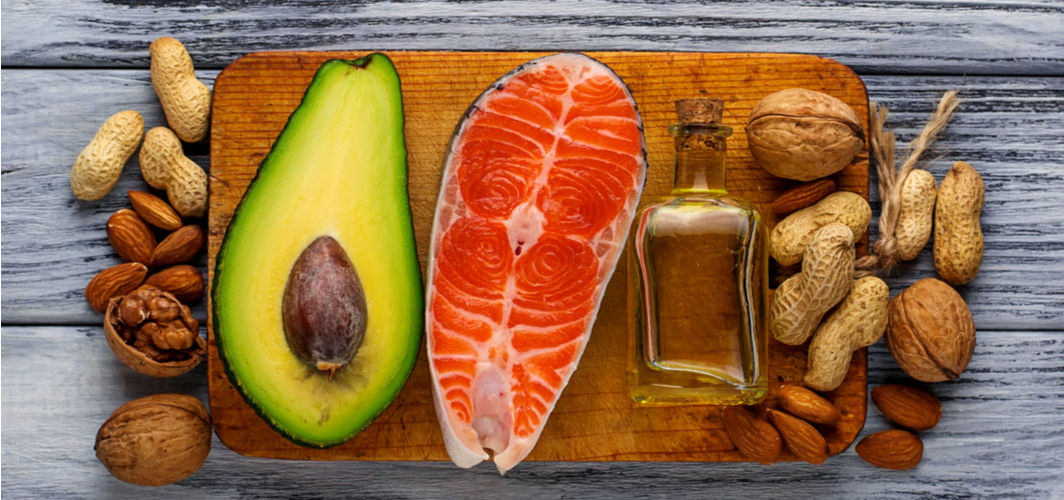Heart Conditions
What Causes Heart Block in Athletes?
6 min read
By Apollo 24/7, Published on - 29 June 2021, Updated on - 18 October 2022
Share this article
0
15 likes

The human heart has two sides ‒ right and left; and four chambers ‒ two atria (upper chambers) and two ventricles (lower chambers), one on each side. These chambers contract and relax to push the blood out of the heart to the entire body. The electrical system of the heart is responsible for this contraction and relaxation of the chambers. Regular exercising is known to improve the electrical system of the heart.
However, it has recently been reported that continuous endurance exercises can lead to the development of heart blocks in athletes and other sports players. Though the condition is not life-threatening, severe heart blocks can result in sudden cardiac arrest. Hence, a team of scientists from Manchester, Montpellier, and Copenhagen conducted a study to understand the cause of heart block in athletes.
The electrical system of the heart
Impure blood from the body enters the heart from the right atria, passes through the right ventricle, and enters the lungs, adding oxygen to the blood. This oxygen-rich blood from the lungs enters the left atrium, passes through the left ventricles, and gets distributed to the body.
This entire process is carried out with the help of the electrical system of the heart, which follows a pathway that includes:
- Sinoatrial node (SA node): Also known as the natural pacemaker of the heart, the SA node is a bunch of cells present in the right atrium, which sets the rate and rhythm of the heartbeat. It sends electrical signals through the walls of the atria to help them contract and send the blood to the ventricles.
- Atrioventricular node (AV node): The AV node is a bundle of cells present in the centre of the heart, between the atria and ventricles. It slows down the electrical signals before they reach the ventricles so that the atria can close before the blood is pushed from the contracted ventricles. This prevents the backflow of blood from the ventricle to the atrium.
- Purkinje Fibres: These fibres send electrical impulses to the muscle walls of ventricles, which helps them contract and push the blood out of the heart to the lungs and body.
What is a heart block?
Heart block, medically called atrioventricular block (AV block) or a conduction disorder, is a condition that occurs when the electrical signals from the AV node get impaired. Normally, the heart rate of a person ranges from 60 to 100 beats per minute. However, a person suffering from a heart block would experience slow or skipping heartbeats as the heart cannot pump blood properly through its chambers.
Heart block usually does not cause any problem in many young athletes. However, if it progresses, it may increase the likelihood of requiring an electric pacemaker later in life. It can also lead to arrhythmia (irregular or abnormally fast heart rate) and increase the risk of heart failure and stroke.
Recommended Read: What Does Your Heart Rate Tell You?
Study: Finding out the reason behind heart block in athletes
The vagus nerve is one of the 12 cranial nerves that originate from the brain. The nerve is responsible for lowering the heart rate and is believed to result in AV block. However, in a study conducted in the past, scientists found that even after blocking the action of the vagus nerve, the functioning of the AV node was impaired.
Therefore, in the recent study published in the journal Circulation Research on 25th June 2021, scientists experimented on retired racehorses and mice to investigate the cause of AV node impairment in athletes. Scientists chose racehorses as they showed similar exercise-induced changes in their heart like the athletes. Electrocardiograms (ECG) were used to determine the rhythm and electrical activity of the horses’ hearts.
Scientists further divided the mice into two groups; sedentary mice and the ones who were trained by swimming. These mice were examined to determine the underlying effect of long-term endurance exercise on the heart.
Results of the study
The findings of the study revealed that:
- Cases of heart block were greater in those racehorses and mice who were given vigorous exercising regularly.
- These animals experienced low levels of two ion channels, CaV1.2 and HCN4, which otherwise helped in sending electrical signals in the AV node.
- Those with low levels of ion channels also showed an increase in the number of microRNAs. These microRNAs binds to the ion channels and further reduce their ability to work properly.
- However, there was an increase in the ion channels and lesser cases of heart block when the exercising was stopped and the mice were administered with a drug molecule called, anti-microRNA.
With this study, scientists concluded that low levels of ion channels could be responsible for heart block in athletes. They further stated that the delivery of anti-microRNA specifically at the AV node could help in preventing heart block in several athletes.
What are the signs of a heart block?
The symptoms depend on the degree of the heart block.
1. First-degree heart block: In this type, the electrical impulse reaches the ventricles slower than normal. This is the mildest form of heart block and hence, the person may not have any symptoms. The condition is usually detected during a routine electrocardiogram (ECG).
2. Second-degree heart block: In this type, the electrical impulses are blocked intermittently exhibiting symptoms that include:
- Chest pain
- Nausea
- Rapid breathing
- Heart palpitations
- Dizziness
- Fatigue
- Loss of consciousness.
3. Third-degree heart block: This is an intense type of heart block where the electrical signals from the atria to the ventricles get completely blocked. The affected person may experience:
- Chest pain
- Fatigue
- Shortness of breath
- Dizziness
- Loss of consciousness.
The presence of these symptoms alone does not confirm the diagnosis of heart block. However, anyone experiencing such symptoms must consult their doctor for further evaluation.
Recommended Read: Warning Signs of an Imminent Heart Problem
Conclusion
Through the recent study, scientists were able to conclude that drugs formed using small anti-mRNA molecules may prevent the reduction of ion channels. This, in turn, could help them develop new therapies for heart block. Scientists further insisted that the benefits of exercising outweigh the risks, thus people should indulge in regular exercise to ensure a healthy heart. The World Health Organization (WHO) recommends people taking up some moderate-intensity aerobic physical activity such as brisk walking, riding a bicycle, or swimming for at least 30 minutes daily to keep the heart healthy.
Heart Conditions
Leave Comment
Recommended for you

Heart Conditions
High Triglyceride Levels and How It Affects the Heart
High triglyceride levels in the blood can increase the risk of developing various heart diseases and metabolic syndrome.

Heart Conditions
Dietary Fats: What's Good for Your Heart?
While some dietary fats offer certain health benefits when consumed in moderation, others have been linked to negative health effects. Knowing the difference can help people make the right choice.

Heart Conditions
Angiogram: Everything You Need to Know
An angiogram is performed to check for anomalies in the blood vessels that may be causing issues in the brain, heart, abdomen, kidneys, and even legs.
Subscribe
Sign up for our free Health Library Daily Newsletter
Get doctor-approved health tips, news, and more.
Visual Stories

Lower Your Cholesterol Naturally with These 7 Foods
Tap to continue exploring
Recommended for you

Heart Conditions
High Triglyceride Levels and How It Affects the Heart
High triglyceride levels in the blood can increase the risk of developing various heart diseases and metabolic syndrome.

Heart Conditions
Dietary Fats: What's Good for Your Heart?
While some dietary fats offer certain health benefits when consumed in moderation, others have been linked to negative health effects. Knowing the difference can help people make the right choice.

Heart Conditions
Angiogram: Everything You Need to Know
An angiogram is performed to check for anomalies in the blood vessels that may be causing issues in the brain, heart, abdomen, kidneys, and even legs.